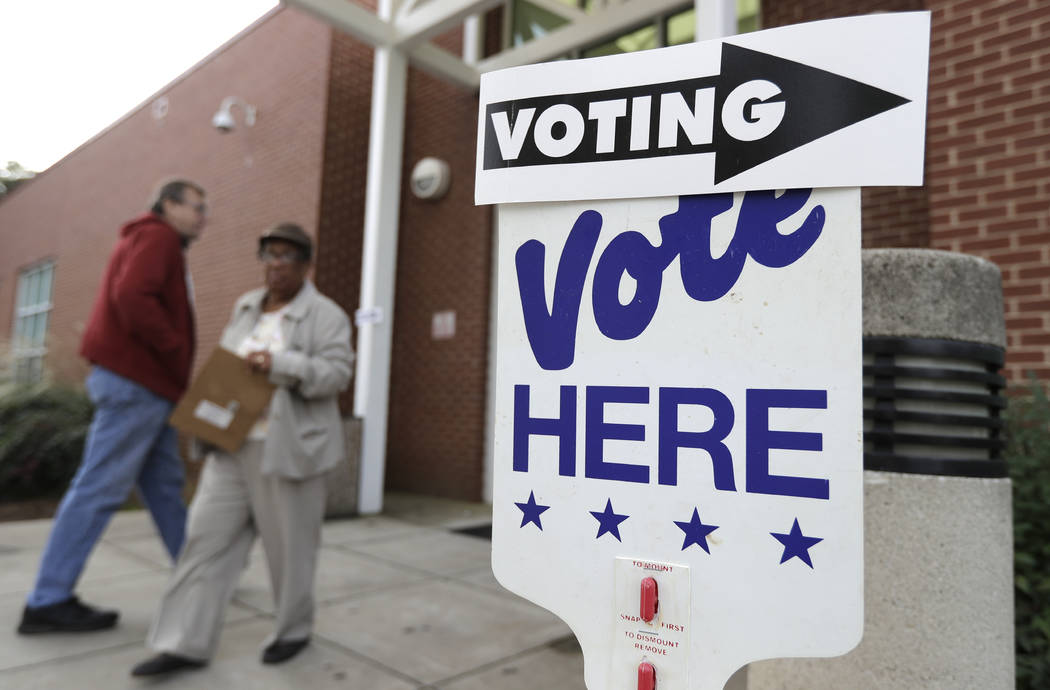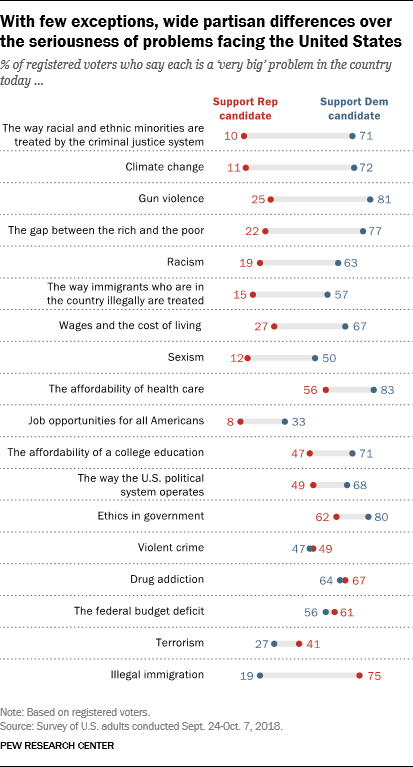Issues may be more important than candidates in Nevada election
CARSON CITY — With Election Day less than two weeks away, how might top-of-mind issues for Nevada voters drive turnout, and possibly shape race outcomes?
While trying to pick winners and losers in tight state races might be a fool’s errand, a little data-crunching can help assess whether the mood of voters can be predictive — sort of like a boxer telegraphing a punch.
National polls have been long consistent about what’s on voters’ minds across the country, and surveys show Nevada’s electorate is no outlier. Pair that with the night-and-day partisan divide, where opposing sides have taken up pet issues like players in pick-up basketball, and the impact of specific issues to drive turnout comes into focus.
“All along, the issues of one party are not matching the issues of the other, which is a little unusual,” said Erik Herzik, a political science professor at the University of Nevada, Reno. “You’ve got two parties talking across each other.”
Finally, mix in some other data – for example, what people are searching for on the internet — and some real-time events, such as the latest early voting results. All that produces a lot of data for pundits and handicappers to debate, or merely guess at. So let’s have it at.
The top issues
With little variation, voters surveyed nationwide list their three top concerns as health care, the economy and immigration, in that order. Nevada is no exception.
A September Kaiser Family Foundation tracking poll, with national and Nevada-specific results, asked respondents to rank the most important issue from among six choices. Both the national and Nevada groups put health care at the top. Jobs and the economy, followed by immigration, ran second and third in the national poll. The No. 2 and 3 spots were reversed in Nevada, but not by much.
Other polls reflect the same rankings, including a Reuters/Ipsos poll released Wednesday. The order might fluctuate slightly depending on daily news events, such as the Brett Kavanaugh Supreme Court confirmation hearings or the Central American migrant caravan, but eventually reverts to form.
Internet search results can be telling. Google Trends maps topics people are searching for over a given time period, and the site has a whole section dedicated to the midterms. (The site measures relative results over time, meaning that a score of 100 indicates the greatest interest over a given period and a score of 0 the least, but not zero interest.)
Over the past week in all 50 states and the District of Columbia, health care was getting far more search attention than either the economy or immigration in most of the country. (The map accompanying the online version of this story updates in real time, so the numbers will likely fluctuate.)
That data in chart form shows that in the week before this story published, search interest in health care topped immigration and the economy. Attention peaks for all three subjects about 8 a.m. most days. A monthly chart of the same data shows that weekly interest peaks on Mondays.
Now, for Nevada. Within the state, health care and immigration, as search topics, run neck-and-neck most of the time. The economy lags the others in terms of search interest. That might not be surprising: People focus more on the economy when it’s bad, and the state’s economic picture is generally improving.
Google’s complete midterm election trends page for Nevada includes searches of candidates for governor and U.S. Senate by name. Its search term results measure slightly different different topics, but again, health care and immigration lead.
It also shows topical search interest by county — something that Google doesn’t make available on its regular user page.
Do all voters feel the same?
The differences about how voters feel about issues can be revealing. For example, the Kaiser Family Foundation survey, which focuses primarily on health care, found that the issue “ranks lower for Republican voters, behind immigration and the economy and jobs, but tops the list for Democrats and independents.”
On a broader range of issues: A Pew Research Center survey of nearly 11,000 adults conducted in September and October found “little partisan agreement on the pressing problems facing the U.S.”
The survey looked at how Democrats and Republicans gauged 18 issues facing the country. Illegal immigration was “the highest-ranked national problem among GOP voters, but it ranks lowest among the 18 issues for Democratic voters,” Pew found. There was a 56 percentage point gap between the two camps, with 75 percent of Republicans regard it as a “very big problem” compared to 19 percent of Democrats.
The complete partisan issues chart shows similar stark differences.
Why do the differences matter?
In a swing state so evenly divided along partisan lines as Nevada, a greater focus on issues, as opposed to other race factors such as a candidate’s voting record or personal appeal, could drive turnout and decide races. Partisans are working that Great Divide.
“Both sides are picking and then stoking the issues to drive their base to the polls,” Herzik said
So if health care concerns get Democrats to the polls, while immigration worries do the same for Republicans, the issue that drives more attention can decide the race. On that score, results for the first several days of early voting could be telling.
From Saturday to Tuesday, the first four days of early voting, more than twice as many Nevadans had voted compared to the same period in the 2014 midterms. Early voting in the 2016 presidential year was predictably higher, but this year’s numbers are unprecedented for a non-presidential election.
Looking at the percentage of voters by party, in 2014, Democrats comprised about 37 percent of the overall early ballot and Republicans were nearly 47 percent, with the rest unaffiliated. In 2016, the numbers were 44 percent for Democrats, 36 percent for Republicans, and 20 percent for unaffiliated.
And this year, through Tuesday, Dems are at 43 percent of the total, Republicans at 39 percent, and 18 percent from unaffiliated. Herzik said those numbers are good for Democrats but “not overwhelming compared to previous years.”
“The indicator I’m going to look at is who got their people out early, because more than half of Nevadans vote early,” Herzik said. “If the Republicans are close then I would say that blue wave is not going to be as great as many Democrats think or hope.”
Contact Bill Dentzer at bdentzer@reviewjournal.com or 775-461-0661. Follow @Dentzernews on Twitter.
























